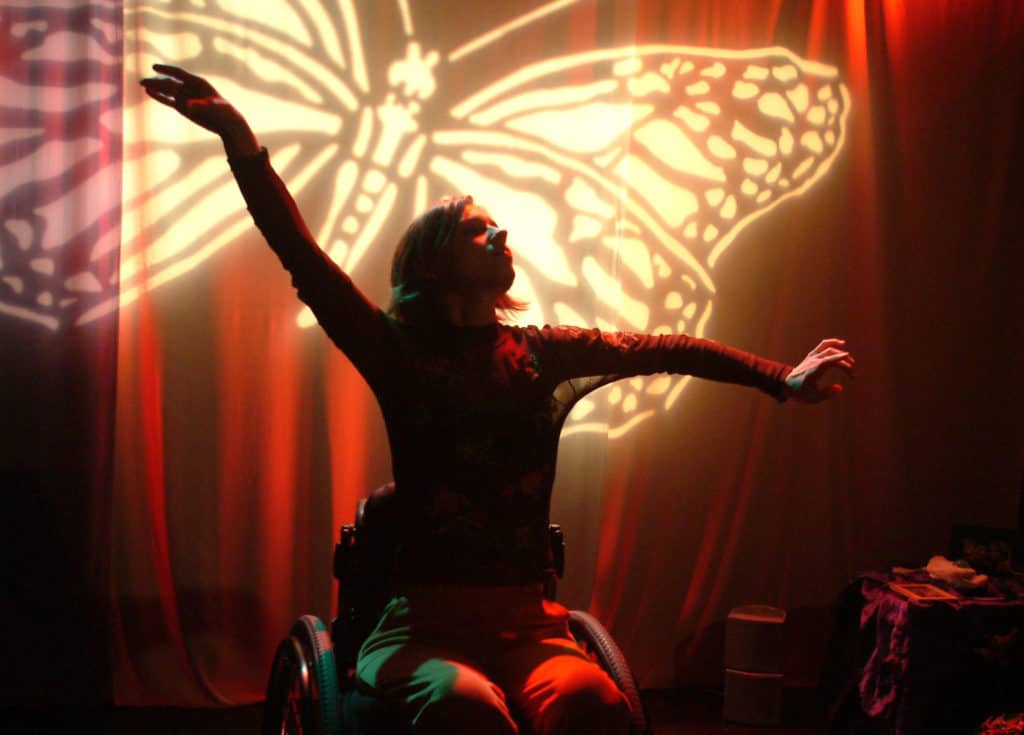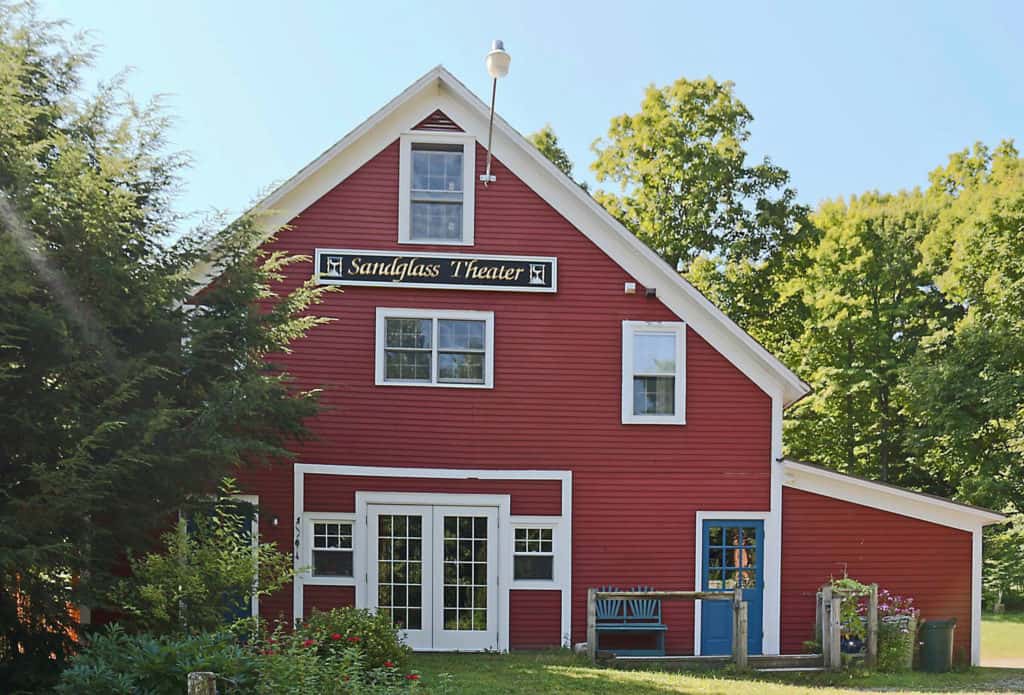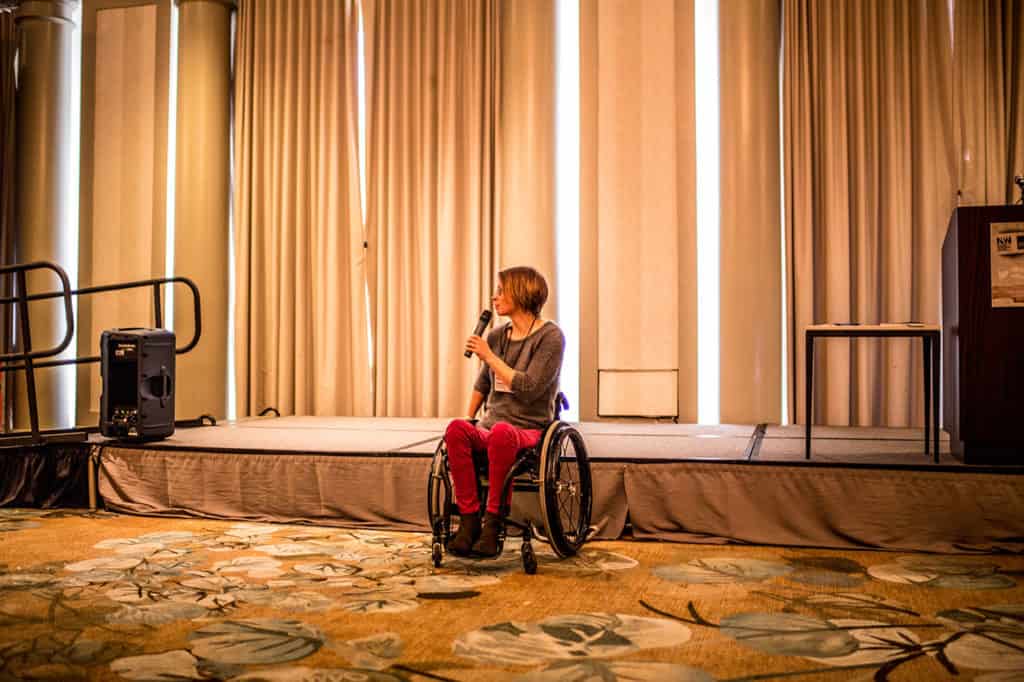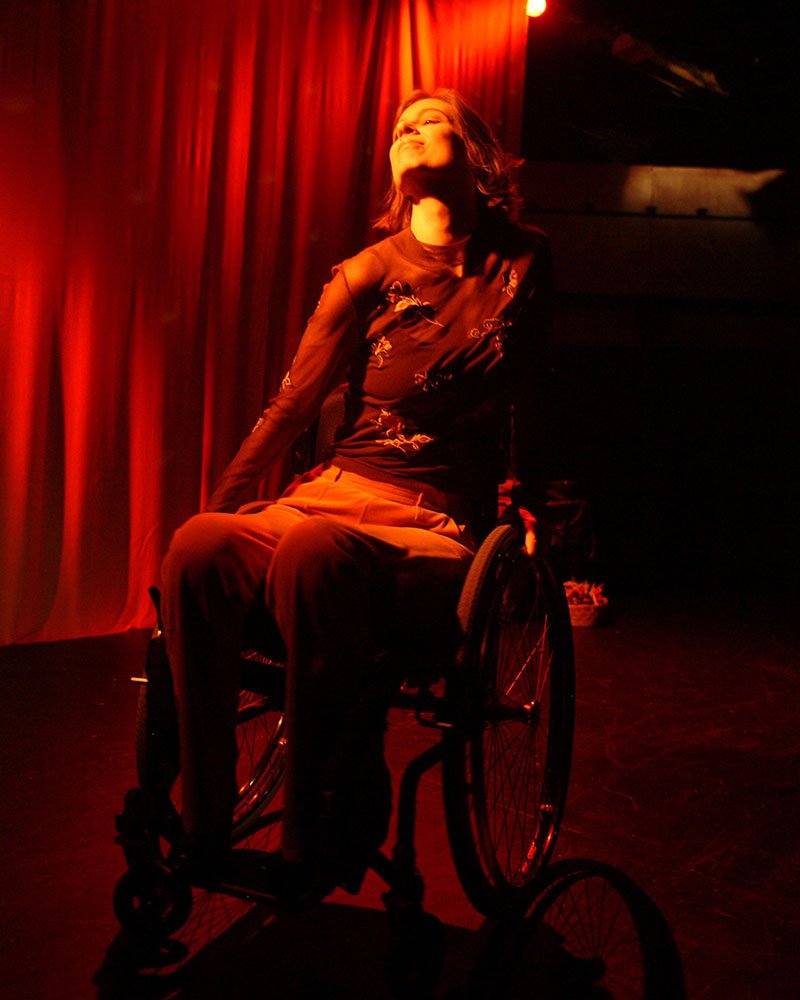The transformative power of “Caterpillar Soup” (Part 1)
September 14, 2009 • 5 minute read
How NPN and Vermont’s Sandglass Theater helped Lyena Strelkoff share her healing journey

In 2008, NPN and Sandglass Theater in Putney, Vermont, welcomed artist and performer Lyena Strelkoff for a one-week residency where she shared “Caterpillar Soup,” an autobiographical work about her journey to wholeness after a fall in 2002 paralyzed the former dancer.
NPN asked both the Sandglass Theater and Lyena Strelkoff to share their experiences during this week-long residency. Below is the perspective of Leslie Turpin, managing director of Sandglass Theater. Click here for the perspective of the artist behind “Caterpillar Soup,” Lyena Strelkoff.
(The following has been edited for length and clarity.)
In her own words: Leslie Turpin, managing director of Sandglass Theater
Lyena’s one-week NPN residency at Sandglass was part of our theater’s annual series Voices of Community, through which we engage our community in dialogue around the topic of diversity. Sandglass is both a performing and presenting company, and our artistic directors’ vision of presenting has always been artist-centered. We strive to make our residencies hospitable and supportive. We embrace our guests as colleagues, friends and fellow artists. We eat together, live together and work together. We talk a lot.

The NPN residency workshops have become central to our mission as they have forced and fostered our outreach in the community. Each performer seems to evoke a certain connection that begs to be made and we look at the residency workshops as a way of making that link.
Residencies become opportunities for us to build or strengthen collaborations with schools, libraries, the Department of Corrections, or a homeless shelter.
We invited Lyena to Sandglass based on a glowing recommendation by OutNorth, who spoke at length about her capacity to connect with a range of communities. Her work, an autobiographical story of her journey after falling out of a tree and losing the use of her legs, was a beautiful and raw tale of healing and transformation.
•
The planning stage
Lyena and I talked for almost a year prior to her visit. We brainstormed workshop possibilities and planned possible workshop venues. This is not always possible, but working with Lyena made us see the value of these ongoing conversations as essential to the success of a residency.
By the time Lyena arrived, I felt as though she knew us and the community, and as though the community was somehow anticipating her arrival.
Day 1: A moving conversation with community healers
The residency week began with a session where we invited doctors, nurses, alternative health care professionals, caretakers and others who have struggled with chronic illnesses and physical loss. Lyena performed a short segment of her piece, “Caterpillar Soup,” which was followed by an open dialogue.
The raw power and eloquence of Lyena’s work, the intimate setting, and the common theme that had brought the audience together, evoked a deep and moving conversation. One long time doctor said it was the deepest conversation he had ever had with other people in his profession.
Momentum began to build.
Day 2: Turning high school students into bold storytellers
On Day 2, Lyena did two 90-minute workshops on personal storytelling at the local high school.
After performing a small segment of “Caterpillar Soup,” Lyena guided students to develop and tell a story about a time they felt excluded/included. Embarrassed and nonplussed students transformed into bold storytellers, sharing poignant and intimate moments.

Days 3, 4 and 5: Social activism, multi-abled audiences, and a statewide forum
Sandglass has a small staff (2 part-time administrators and 2 part-time artists), but we try and go to the workshops with our artist guests. We see their work in the community as a vital part of their experience and our outreach. Seeing how they work enables a dialogue between us.
It helps us to understand the different communities that we are trying to reach as a theater and, most importantly, it helps us consider and reflect on our own teaching.
Lyena’s workshops for the remainder of the week engaged a wide range of communities.
- On day 3, she presented at The SIT Graduate Institute in a course on theater and social activism.
- On day 4, she did a workshop at the New England Youth Theater for the multi-abled theater class for adolescents and adults.
- And on day 5, Lyena was a visiting guest performer in a statewide artist forum on issues of access in the arts, sponsored by the Vermont Arts Council.
Although Lyena’s workshops were fundamentally very similar in structure, each one began with a different segment of her work. The way she worked demonstrated how tuned-in she was to each group of participants—her teaching and healing qualities were quite apparent in the way she guided participants to create and reveal their stories and find their own power as storytellers.
The culmination: Full performances of “Caterpillar Soup”
On days 5 and 6, Lyena performed “Caterpillar Soup” to sold-out audiences.
The work was stunning in its beauty, honesty and intimacy. Her show evoked so many emotions in the audience that people were literally crying in her lap afterward or hugging each other in the parking lot. People called the theater to ask for her contact information because they wanted to thank her or send her an idea or just stay in touch with her.
From the moment we waved her and Dean (her husband and tech director) out the driveway, we began thinking about how to bring her back.
What happens next?
Through an NPN Community Fund Residency we are now planning her return with a group of interested community members from various organizations.
But that is not all. Through our work with Lyena, we became aware of the access barriers in our theater and are redesigning the entry lobby and bathroom.
For us personally, her performance has lingered in the air for many months. We refer to it, to her, and to the way her story personally affected us. I think I was unaware of how the fear of physical loss has closed us off from talking about it with others. Something shifted between us and I am hopeful that that shift will continue to reverberate elsewhere.

Addendum: With the help of a Community Fund Grant from NPN, in 2011 Sandglass Theater brought Lyena Strelkoff back for a two-week residency to workshop and perform “Caterpillar Soup” for even more communities.